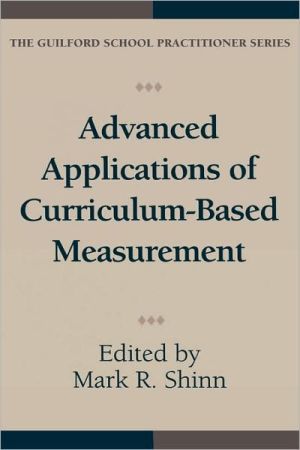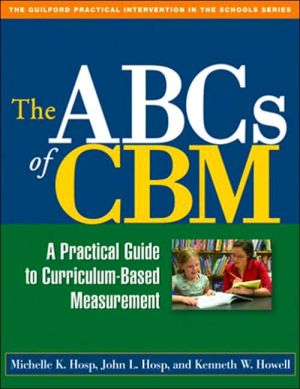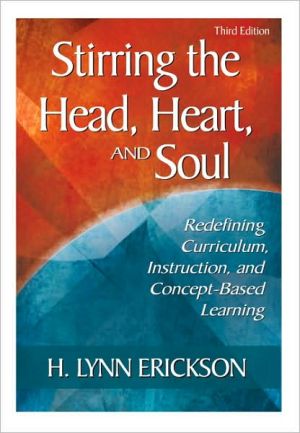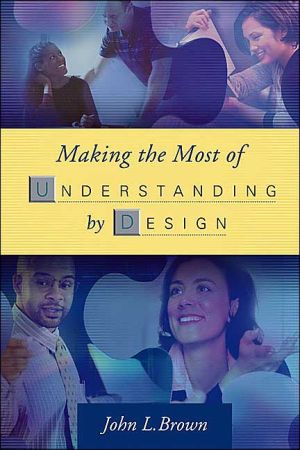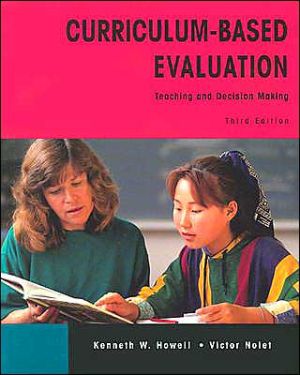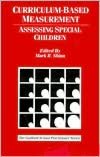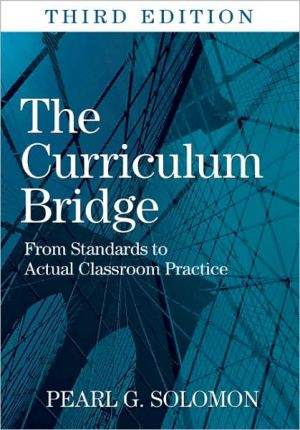Advanced Applications of Curriculum-Based Measurement
Developed specifically to overcome problems with traditional standardized instruments--and widely used in both general and special education settings throughout the US--curriculum-based measurement (CBM) comprises brief assessment probes of reading, spelling, written expression, and mathematics that serve both to quantify student performance and to bolster academic achievement. Building on the basic concepts described in a previous volume, Curriculum-Based Measurement, this work presents new...
Search in google:
Developed specifically to overcome problems with traditional standardized instruments--and widely used in both general and special education settings throughout the US--curriculum-based measurement (CBM) comprises brief assessment probes of reading, spelling, written expression, and mathematics that serve both to quantify student performance and to bolster academic achievement. Building on the basic concepts described in a previous volume, CURRICULUM-BASED MEASUREMENT, this work presents new and enhanced assessment techniques and elaborates an advanced problem-solving model for use in educational evaluation and planning. Broadening the applications of CBM methodology, contributors discuss its implementation with diverse populations including preschoolers, members of cultural and linguistic minority groups, and secondary students. Special features include reproducible forms guiding decision-making about the reintegration of students from special to general education.
Ch. 1Advanced Applications of Curriculum-Based Measurement: "Big Ideas" and Avoiding Confusion1Ch. 2Curriculum-Based Measurement: One Vehicle for Systemic Educational Reform32Ch. 3Contemporary Perspectives on Curriculum-Based Measurement Validity61Ch. 4Computer Applications to Address Implementation Difficulties Associated with Curriculum-Based Measurement89Ch. 5Assessing Early Literacy Skills in a Problem-Solving Model: Dynamic Indicators of Basic Early Literacy Skills113Ch. 6Curriculum-Based Measurement and Its Use in a Problem-Solving Model with Students from Minority Backgrounds113Ch. 7The Use of Curriculum-Based Measurement with Language-Minority Students175Ch. 8Curriculum-Based Measurement for Secondary Students214Ch. 9The Use of Curriculum-Based Measurement in the Reintegration of Students with Mild Disabilities254Index309
\ From the Publisher"This book is a 'must' in the graduate preparation and the continuing education of school psychologists. Its content is essential to system reform efforts and to improving the education performance of low-achieving students." --Daniel Reschly, PhD, Distinguished Professor, Iowa State University\ "Research-based, practical, and functional. Advanced Applications of Curriculum-Based Measurement demonstrates how CBM can be integrated into a problem-solving approach to address needed information for instruction, learning, and assessment." --Judy Elliott, PhD, National Center on Educational Outcomes, University of Minnesota\ "Given its focus, methods, and problem-solving utility, Curriculum-Based Measurement (CBM) is arguably the most important educational assessment technology currently available; the content of this text shows the reader why this is so. This book presents in a clear and concise fashion the most recent developments in the area of educational assessment known as curriculum-based measurement (CBM). This book is the perfect companion and follow-up to its predecessor, Curriculum-Based Measurement: Assessing Special Children, published by Guilford in 1989. The earlier text focused on the basics of CBM including its assessment philosophy, tools and strategies, technical adequacy information, and its usefulness for making educational decisions. Now, the contributors to this book present the full array of exciting recent developments in CBM applications and research, framed within a problem-solving model of professional educational practices. The authors individually and collectively demonstrate how the systematic use of CBM can contribute to the resolution of some of the most challenging and important problems facing educators today. As such, this book should be at the top of the 'must read' list of all professionals in the field of education." --Gary Stoner, PhD, Associate Professor and Director, School Psychology Program, University of Massachusetts at Amherst\ \ \
